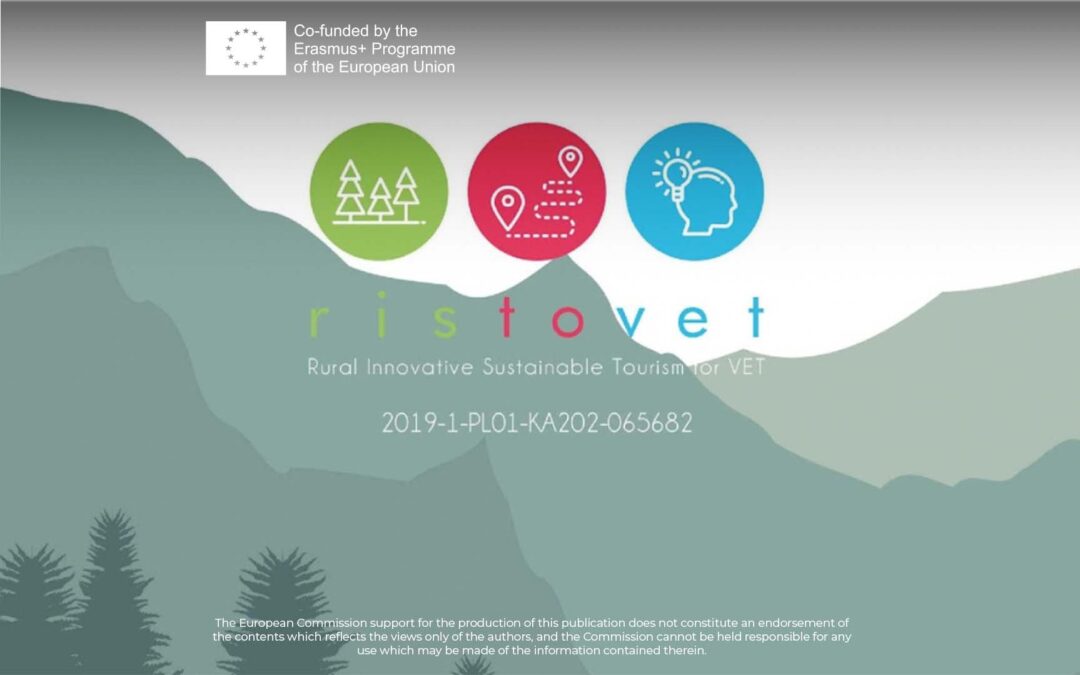We are glad to announce that all the results of the project are out and our consortium has been arrived successfully at the end of the project.
This project had the aims to develop, structure and share the professional knowledge about local – based sustainable tourism 4.0. European VET providers and educational institutions that were involved in a professional training and self-training process in order to face the challenges of contemporary tourism. Contemporary tourism businesses, in fact, in the last decade have been experiencing the challenge of new forms of tourism, but also a lack of an adapted and updated professional education in this field. All over Europe and beyond contemporary tourists want to enjoy authentic local realities together with local inhabitants. On the other hand, the increasing presence of sharing economy websites and apps encouraged several non-professionals to open up to tourism business. Both these phenomena contributed to the development of non-structured practices in the contemporary forms of hospitality and to the increasing obsolescence of traditional business models.
In this framework this strategic partnership of six European VET providers, higher education institutions, NGOs and SMEs had the aims to structure these practices in a shareable form of professional knowledge.
To achieve the goals of the project, the consortium has defined the following intellectual outputs:
- IO1: ANALYSIS OF EXISTING DATA ABOUT TURISM, NEW FORM OF HOSPITALITY AND PROMOTION OF LOCAL IDENTITIES, DIGITAL TOURISM IN THE LOCAL CONTEXTS OF PARTNERS.
An analysis of the national and local contexts of each partner’s country that contains data about small tourism businesses and their strategies in responding to the challenges of the contemporary tourism market.
Is it possible to access to the analysis, through the web site in English.
- IO2: TRAINING PATH DEFINITION, DEVELOPMENT OF EDUCATIONAL UNITS AND PILOTING PROCESS.
A training path and of the educational units (hereafter EUs), and they have been tested successfully in a piloting process.
Accessible, in six languages, English, German, Polish, Italian, Greek and Dutch.
- IO3: DEVELOPMENT OF AN E-LEARNING PLATFORM
An e-learning platform was developed according to the needs of the final users and also according to the tools used during the definition of the training path.
Please, click here to access to the e-learning platform.
The consortium has also developed a guideline on how to use the e-learning platform, to help students and teachers, to have a easy access to the contents developed.
The guideline has been translated into the six consortium’s languages. English, German, Polish, Italian, Greek and Dutch.
- IO4: ORGANISATION OF WEBINARS
The e-learning platform was also shown during the four international webinars. They were held in April, May and June 2022. To give the opportunity to be reviewed and give more visibility to the project, the webinars were recorded and published on the YouTube channel of the project.
You can easily access to the webinars by clicking here. Don’t forget to subscribe to the channel and leave a like if you liked the webinars.
Thanks to the work done in this project, different materials and data have been collected that will be dedicated in a national and local context of each partner country. Data were collected on small tourism enterprises and their strategies to meet the challenges of the contemporary tourism market. In addition, we analysed the training paths used by VET providers in the tourism sector in each partner country. This comparative analysis of the real economy of local contexts and VET education systems represents an innovation in the field of tourism studies and a step forward in building the competitiveness of small tourism enterprises.
For this reason, we are sure that through the results achieved in this project young workers will easily learn all professional knowledge about local sustainable tourism 4.0. They will be able to design a strategy to address the challenges of contemporary tourism, extrapolate models from local best practices in the countries involved.
R.I.S.T.o.VET consortium is very satisfied with the results achieved and happy that the work carried out during these years will be available to future tourism professionals who want to improve their skills.
For more info about the project please visit our Facebook page.
